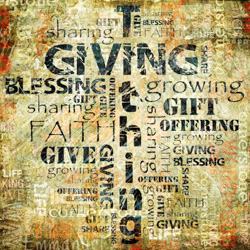 There are moments when we judge ourselves. There is no right or wrong, good or bad in this experience unless we judge judgment to be bad and wrong. Making peace with our judgment moves us closer to living our oneness. Our judgment defines who we are, and it shapes the beliefs and values we represent in this lifetime – it is an inseparable part of our journey. As we grow to understand the natural function of judgment, we may release our guilt about it.
There are moments when we judge ourselves. There is no right or wrong, good or bad in this experience unless we judge judgment to be bad and wrong. Making peace with our judgment moves us closer to living our oneness. Our judgment defines who we are, and it shapes the beliefs and values we represent in this lifetime – it is an inseparable part of our journey. As we grow to understand the natural function of judgment, we may release our guilt about it.
Some teachers disguise judgment as discernment; they teach us that it is wrong to judge but wise to use discernment. Discernment is simply a synonym for judgment, nothing more. In my judgment, teaching us to frown upon judgment is a religious tenet that promotes our habits of separation and internal conflict. Disguising judgment in the cloak of the gentler, more “spiritually” correct words such as discernment is manipulative. It does not support our growth, our awareness, and our awakening.
Using another word for judgment allows us to continue believing that judgment is bad while discernment has good intentions. What if we allow the word judgment to have equally good intentions? By treating our natural inclination to judge as a bad thing, we continue to promote the idea that there’s something wrong with human nature. Shameful judgment about judgment has been handed to us, without question, through religion and spirituality.
As an example, in the Christian community, issuing a judgment is considered wrong. Certain scriptures admonish Christians not to judge. There is wisdom in this teaching when the aim of the followers is to love one another unconditionally. Yet, included in the Christian faith there are many rules by which devotees judge each other as well as non-believers. Christians say that it is wrong to judge, while they engage in judgment. Teaching people that it is bad to judge is confusing. This is the moment, right now, for us to grow beyond the guilt and shame of our nature to judge and cultivate our awareness of oneness.
Yet judgment can become an obstacle on our path. When I forget that ALL of my judgment is an expression of who I am, I have fallen asleep and imagine that we are separate. Living our oneness, I remember that I cannot judge you, nor can you judge me. Every judgment made reveals only who I am; it’s not about you. My judgment tells me what is right or wrong for me – not for you. Your judgment is not about me, either.
Moreover, falling into a habit of pretending that I am judging you creates energy blockages in my expression of life energy. Pretending that I’m judging others blinds me to my whole self. Do I judge myself to be better than or lesser than another? Do my judgments block my compassion and empathy for myself and others? Do I permit my judgment to create “us versus them” energy in our society? Is my attention present or have I fallen asleep? When I am awake, my judgment is a teacher that I heed. I am grateful to my judgment for revealing my core beliefs.
Further, if I judge myself harshly, I invite feelings of guilt and shame into my expression of life energy. Feelings of shame and guilt are not good or bad either, yet if they become stuck in the energy body, these feelings begin to manifest as ailments in the physical body. All feeling energy is meant to be felt in the moment and released. Upon judging ourselves as guilty, we feel ashamed and tend to punish ourselves repeatedly. We attach to our judgment of guilt rather than accept the message within it and let it go. The path to letting go of my guilt is to forgive myself completely. Forgiveness is not about forgetting the lesson; forgiveness is about love.
There is value in remembering that just as I cannot actually judge another, I cannot be judged by another. Outwardly directed judgment is an illusion. I have discovered the humor in observing the judgment issued regarding the judgment of others. If someone points out that I am judging them, I own it. Also, if they are a student of oneness, I ask, who is judging you? I cannot feel judged by another unless I allow myself to adopt a feeling of guilt. I cannot judge another, and no one judges me but me. If I have forgotten this, I am grateful to be reminded. I understand that ALL judgment is self-judgment. Embracing our nature to judge frees us from imagined separation. All judgment is spoken into the mirror of reality. Do I listen to the voice of my judgment? What am I learning about who I am? How do my beliefs serve me?
I set the intention to let my judgment be my teacher. Judgment is a natural part of life, and I embrace the function of judgment without fear or shame. I notice when I am judging, and I let go of feeling guilty about my judgment so that I may listen closely to my inner guidance. I remember that my judgment is teaching me about beliefs held within my authentic self. In each moment, I have the freedom to decide if the beliefs I hold serve my well-being. I thank my judgment for bringing my core beliefs to my conscious awareness. I release feelings of guilt for thinking or speaking my judgment. I hear my judgment telling me who I am. Then, I gracefully let go of my judgment as I live my life true to who I am.
In summary, my judgment is my teacher, and I listen attentively. I look in the mirror of my judgment to see my whole self. I stop judging myself harshly for judging. I forgive myself completely. This is loving self-care. This is the journey into living oneness.
 The question to answer is this: Is my attention present? Consciousness is only ever here now. Thoughts and feelings cannot occur anywhere other than in the present moment. Our physical body exists only in this moment. However, our attention is unfixed in time and space. Our attention drifts away from the present as we experience memories or imagine the future.
The question to answer is this: Is my attention present? Consciousness is only ever here now. Thoughts and feelings cannot occur anywhere other than in the present moment. Our physical body exists only in this moment. However, our attention is unfixed in time and space. Our attention drifts away from the present as we experience memories or imagine the future. During our holiday season, families gather and practice their traditions of giving thanks, giving gifts, and wishing one another a happy new year. When the nights are long and the days are cold in the northern hemisphere, we spend more time together. Putting up decorations and colorful lights adds luster to the home. Family gatherings are intended to be loving and fun. Being mindful of our gratitude boosts our feelings of contentment. Feasts and gift exchanges are meant to be joyful. Throughout the holiday season we remind one another to be of good cheer.
During our holiday season, families gather and practice their traditions of giving thanks, giving gifts, and wishing one another a happy new year. When the nights are long and the days are cold in the northern hemisphere, we spend more time together. Putting up decorations and colorful lights adds luster to the home. Family gatherings are intended to be loving and fun. Being mindful of our gratitude boosts our feelings of contentment. Feasts and gift exchanges are meant to be joyful. Throughout the holiday season we remind one another to be of good cheer.
Feedback